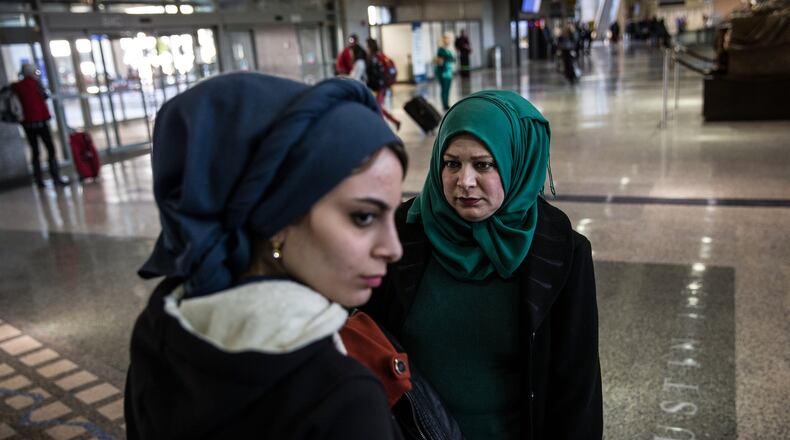A second federal judge has blocked President Donald Trump’s travel ban nationwide, using Trump’s own statements about Muslims against him.
On Thursday, U.S. District Court Judge Theodore Chuang, an Obama nominee based in Maryland, froze a key part of the executive order that would temporarily bar visitors from six Muslim-majority countries. He left in place the rest of the directive, which also seeks to temporally bar refugees from around the world.
In his 43-page ruling, Chuang points to Trump’s critical comments about Islam and his campaign promise for “a total and complete shutdown of Muslims entering the United States.” The Trump administration has said it revised the directive to respond to legal challenges.
“Despite these changes,” Chuang wrote in his ruling, “the history of public statements continues to provide a convincing case that the purpose of the second executive order remains the realization of the long-envisioned Muslim ban.”
The International Refugee Assistance Project, HIAS and the Middle East Studies Association of North America had asked Chuang to halt the entire executive order.
On Wednesday, U.S. District Court Judge Derrick Watson – based in Hawaii – issued a temporary restraining order blocking the ban nationwide. A federal judge in Washington is considering a separate legal challenge.
“Enforcement of these provisions in all places, including the United States, at all United States borders and ports of entry, and in the issuance of visas is prohibited, pending further orders from this court,” Watson, an Obama nominee, wrote in his 43-page decision.
The U.S. Justice Department disagreed with his ruling, calling it “flawed both in reasoning and in scope.”
“The president’s executive order falls squarely within his lawful authority in seeking to protect our nation’s security, and the department will continue to defend this executive order in the courts,” said Sarah Isgur Flores, a Justice Department spokeswoman.
Last month, a federal appeals court based in San Francisco upheld a temporary restraining order against Trump's first travel ban. In that case, the states of Washington and Minnesota argued the directive was hurting their economies and universities. Parts of his executive order, according to the states, were "intended to disfavor Islam and favor Christianity."
The new order seeks to bar visitors from some six predominantly Muslim countries for 90 days: Iran, Libya, Somalia, Sudan, Syria and Yemen. Iraq — a major ally in the fight against the Islamic State — has been dropped from the original list of seven nations. Travelers with valid visas would be exempted. So would green card holders, some of whom were detained in January at Atlanta's Airport after returning from trips to Iran.
Also, the nation’s refugee resettlement program would be halted for 120 days. But Syrian refugees would not be barred indefinitely as the original order required. Further, the total number of refugees who may be resettled in the U.S. in the fiscal year ending in September would drop to 50,000, from the 110,000 goal the Obama administration had set.
Appearing at a rally in Nashville Wednesday, Trump reacted furiously to the decision in Hawaii and vowed to fight on. He said his latest directive is a “watered down version of the first one.”
“Let me tell you something, I think we ought to go back to the first one and go all the way, which is what I wanted to do in the first place,” he said, his voice growing hoarse. “The danger is clear. The law is clear. The need for my executive order is clear.”
About the Author
The Latest
Featured



